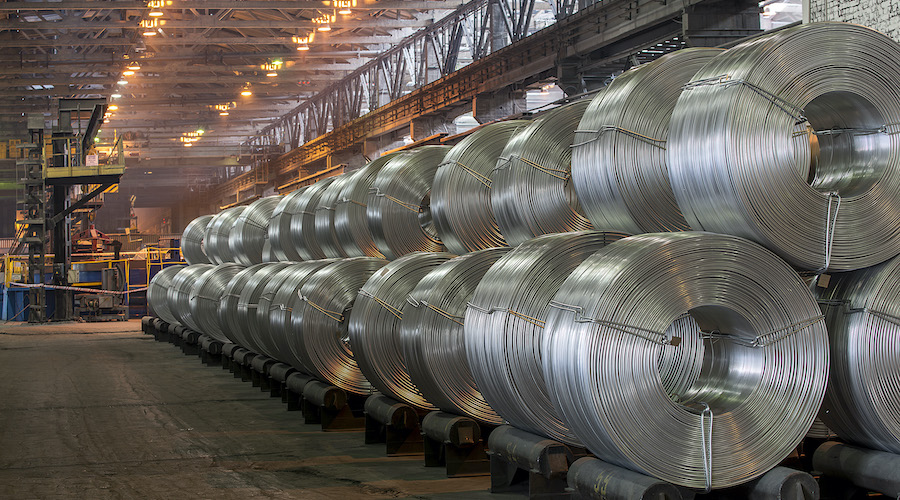
Europe’s aluminum industry group has considered lobbying for European Union sanctions on Russian aluminum, but would oppose specifically targeting the country’s largest producer Rusal, according to a document sent to members.
The head of trade group European Aluminium said it prepared the internal memorandum for planning purposes and had no information about any imminent EU sanctions.
The European Commission declined to comment.
The document, dated July 2023and seen by Reuters, said members of European Aluminium had discussed the possibility of “actively calling for EU sanctions on Russian aluminum.”
But while substituting other supply for Russian ingots would be feasible in Europe, the wide global spread of Rusal’s operations makes sanctions on that company more problematic, the memorandum said.
“European Aluminium (therefore) recommends avoiding that EU sanctions would target Rusal as a company,” the association said.
Rusal, which did not reply to a request for comment, produced 4 million metric tons of primary aluminum last year, about 6% of global supply.
The document noted that Rusal owns Ireland’s Aughinish, the EU’s largest refinery of raw material alumina, as well as the Kubal smelter in Sweden.
The benchmark aluminum price on the London Metal Exchange was up 0.2% at $2,282.50 a metric ton in afternoon trading, having declined by 4% so far this year.
The US-based Aluminum Association trade group said it had watched Russia’s aggression in Ukraine with “growing alarm”, and had been in touch with European Aluminium.
The industry supported any efforts by the US government and allies to address the ongoing crisis, “including new tariffs on aluminum imports from Russia announced earlier this year,” it said in a statement.
Russia accounts for less than 3% of US aluminum imports.
The EU has so far restricted imports of only a limited number of specific aluminum products from Russia – aluminum plates, sheets or strip with thickness exceeding 0.2 mm.
Its latest sanctions package was adopted in June and active discussion on another package are not expected in the near term.
In February the United States announced plans to impose a 200% tariff on aluminum and derivatives produced in Russia while in May, Britain published plans to ban imports of Russian aluminum along with diamonds, copper and nickel.
“Our members asked us to consider the issue and this is purely an internal exercise,” European Aluminium director general Paul Voss told Reuters. “There is no suggestion at all as far as I’m aware that the Commission is planning any new sanctions at this stage.”
The document says the EU’s dependence on Russian aluminum has fallen since 2018, when the United States slapped sweeping sanctions on Rusal, which froze the bulk of the company’s exports as well as paralyzing global supply chains.
Last year, Russian aluminum ingots made up 12% of EU imports, down from 25% in 2018, it said.
Due to the widespread disruption of the aluminum industry by the 2018 US sanctions, Washington scrapped them in 2019.
If the EU imposed sanctions on Russia, it also must make sure that supply does not evade the measures through third countries, the document said.
“Specific attention should be given to Turkey and China which are seen by several analysts as current and future alternative destinations for Russian metal.”
The industry group said any sanctions would need a “reasonable transition period” so alternative sources could be found.
(By Pratima Desai, Eric Onstad, Polina Devitt, Gabriela Baczynska and Ernest Scheyder; Editing by Jason Neely, Conor Humphries and John Stonestreet)
Comments
Vlad
Weakness is acceptance, ban Russian bauxite, alumina and aluminium while Vlad is playing warmonger